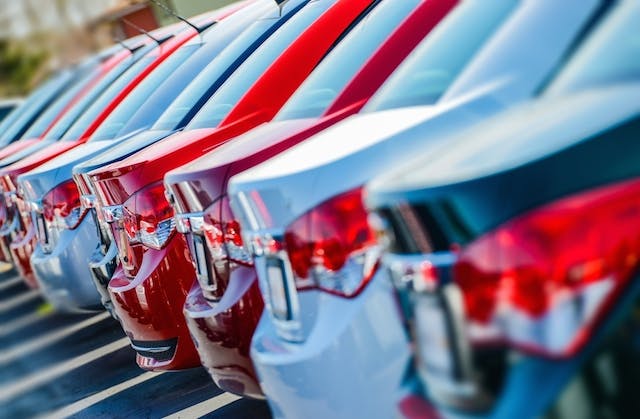Can I Transfer My Insurance to a Existing Car
Can I transfer insurance from one car to another?
The majority of insurance providers will allow you to transfer your car insurance from one car to another, without having to get new car insurance. All you'll need to do is give your insurer a ring and provide details such as, your policy number and new car registration number.
Bear in mind that your premium could go up or down, depending on the type of car you're buying and its value. For example, if you currently have a small runaround and buy a powerful sports car, or a 4x4 with a large engine, your insurer is likely to increase the cost. This is to meet the added risk and expense of your new vehicle.
Your insurer may also charge an administration fee to make changes to your car insurance policy, usually costing from £15-£45. Once the change has been confirmed with your insurer, you should be covered to drive your new car immediately, but make sure you check.
Can I do a car insurance transfer mid-year?
Yes – it's important to inform your insurer as soon as you plan to buy your new car, as even if you have several months left on your policy it will not automatically cover your new vehicle.
If you don't tell your insurer you're driving a different car you won't be covered in the case of an accident, and you won't be driving legally as your cover is not valid.

Should I just get new car insurance?
If you don't want to stay with the same car insurance provider, the alternative is to compare quotes and switch car insurance. You might find you can get a better deal by cancelling your current insurance policy and getting new car insurance elsewhere.
Your insurer is likely to ask for a cancellation fee of around £50, but you should be able to get a refund for any unused cover (or your upcoming payments will be written off if you pay monthly). However, it's important to check your policy documents carefully before cancelling, as some insurers will only offer a partial refund.
Be aware you may also lose your no claims bonus for the year, if you switch to a brand-new policy.
Despite the cancellation costs, you might be able to save if you can find a cheap enough insurance policy for your new car. Start by looking at a comparison site like Uswitch, then see if your lowest quote would be more affordable once you've factored in your cancellation fee and any loss on your premium — it's an extra bit of effort but you might be surprised at how much you could save by switching this way.
Insuring a new car to drive home
In all the excitement of buying a new car, it's easy to forget to check whether you've got cover in place for the day you're picking it up.
If you're buying a new car from a dealer it's likely they will include a temporary car insurance policy in the sale, but it pays to check. This will cover you for up to seven days until you have arranged your own policy.
Some dealerships also offer incentives, such as one year's free car insurance. However, you will need to weigh up how long you have left on your existing car insurance policy, and how much your existing insurer will charge you if you cancel, before deciding whether this is a good deal or not.
If you buy a secondhand car you will need to take out your new insurance policy (or amend your existing policy) before you can drive the car home. Don't be tempted to drive the car home without adequate cover — it's not just the risk of a crash you have to think about, you're actually driving illegally if you don't have insurance.

Alternatively, you may have minimal insurance cover to drive the vehicle home if you have 'driving other cars' permission on your current insurance policy. Check your policy carefully to see if this is included. Bear in mind that this will give you the minimum amount of cover to drive legally (third party), so if you get into an accident on the way home your insurer won't pay out for any damage to your new car.
What if I am buying a second car?
If you're buying a second (or third, fourth, fifth etc) car, you'll have to have an insurance policy for each vehicle. Contact your current insurer to see if they offer special 'multi-car' policies or discounts, or take out a new policy — just make sure you shop around for the best price.
Even if you take out a separate insurance policy for your additional car, you must inform all insurers you hold policies with that you have a new vehicle — the insurer will base your premium on how many cars are in the household. This might work in your favour, as they may even reduce your premium based on the fact you may be driving the original car less.
So before taking out new car insurance, consider whether you will save money staying with your current provider, whether the type of cover you need has changed, and if multi car insurance would work best.
When else might I need to change my car insurance?
You should always inform your insurer if any of the following changes apply:
-
You've moved home
-
Your marital status and name have changed
-
You've changed gender
-
Your car is kept somewhere else overnight
-
There's been a change to the main driver
-
You're adding an additional driver
-
You've changed jobs or been promoted to a new role
-
You've modified the car
-
You've been involved in an accident (even if you're not making a claim)
-
You have a driving conviction
Can I Transfer My Insurance to a Existing Car
Source: https://www.uswitch.com/car-insurance/how-to-transfer-insurance-to-your-new-car/
0 Response to "Can I Transfer My Insurance to a Existing Car"
Post a Comment